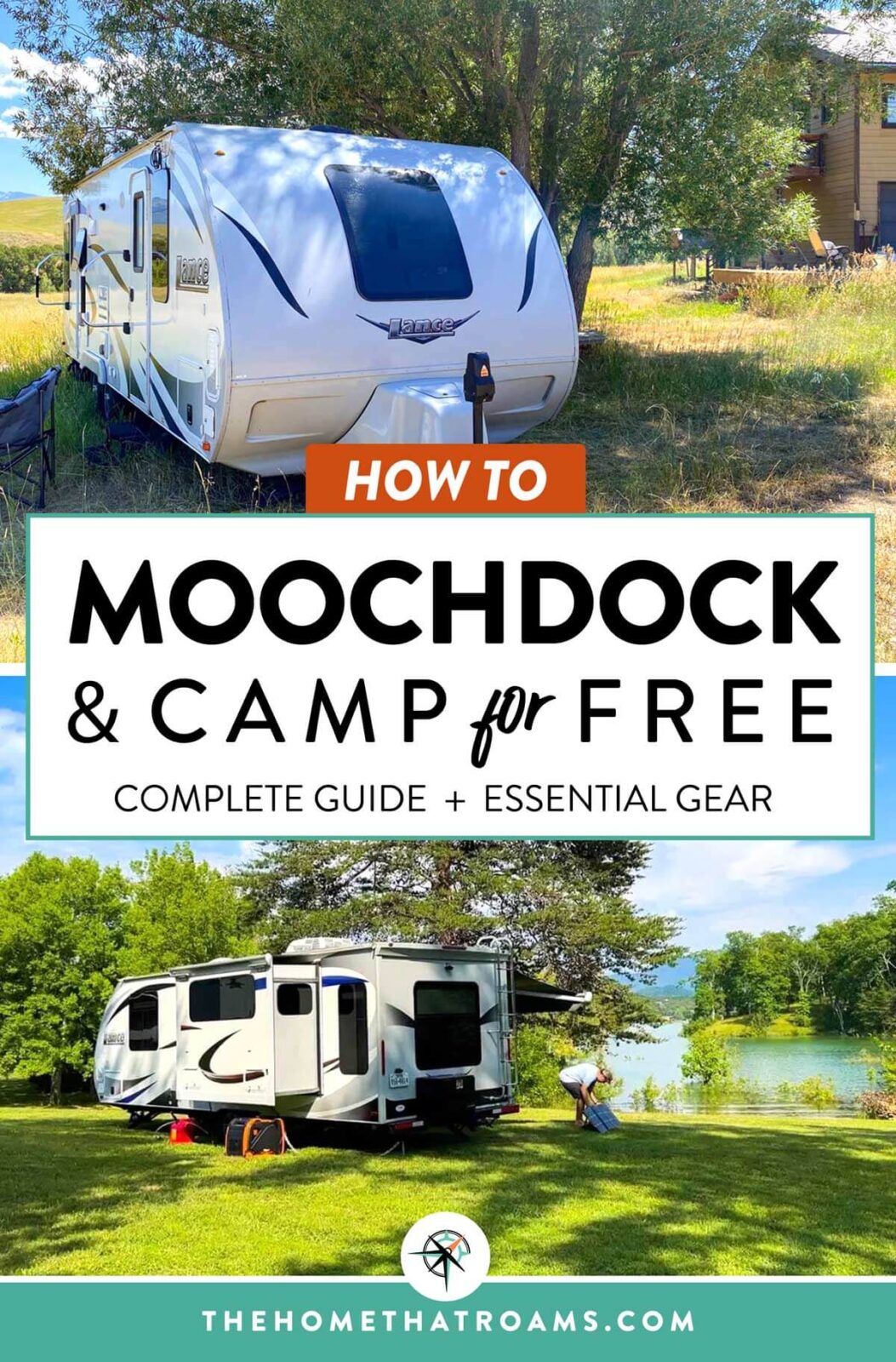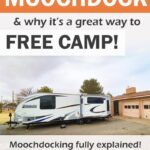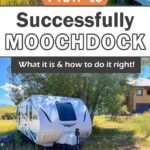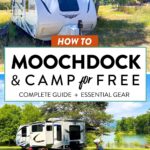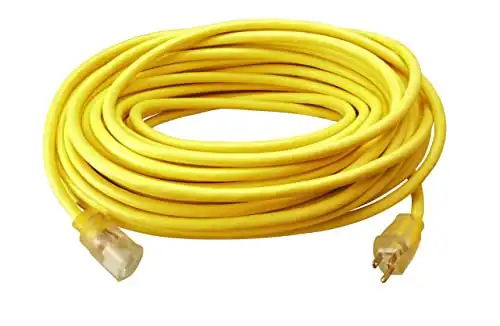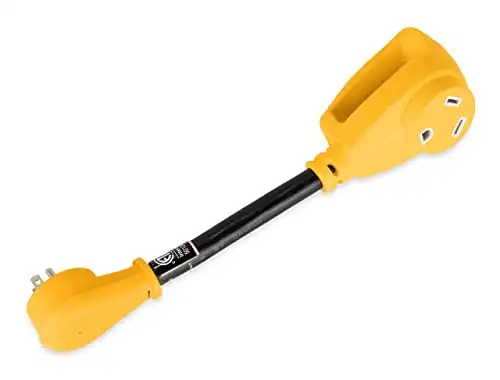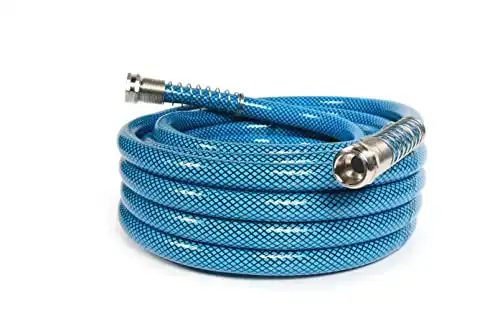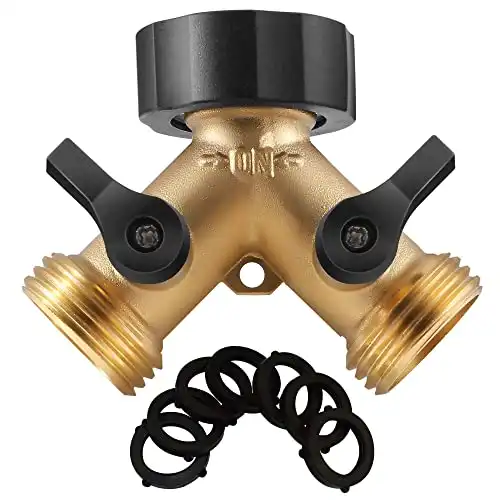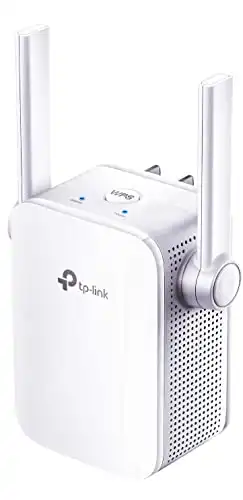What is Moochdocking? Free Camping & How to Do It
As an Amazon Associate, we earn from qualifying purchases. We also earn from other affiliate websites. See our full disclaimer.
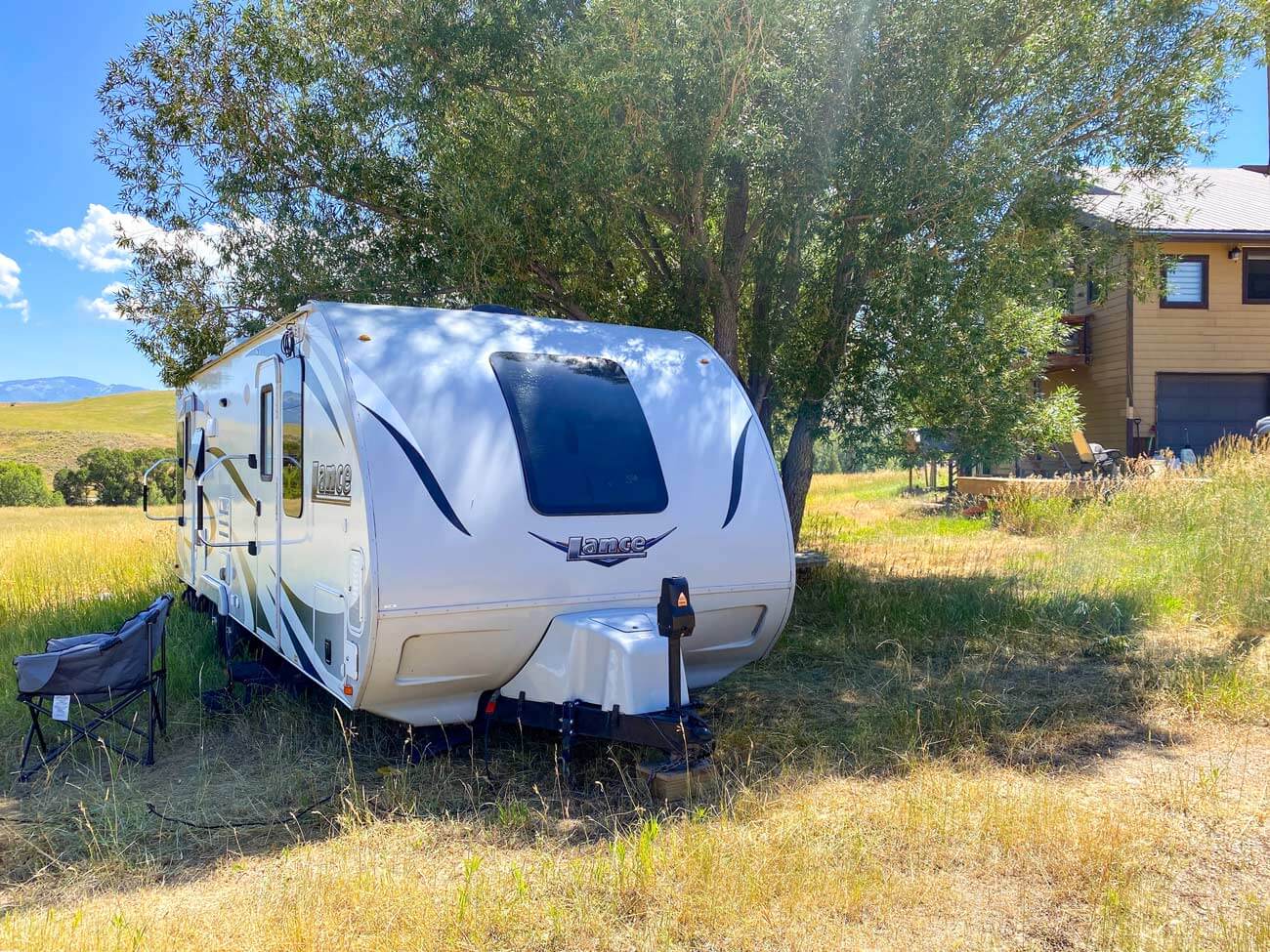
For RVers, free camping can be a big part of the lifestyle.
Moochdocking is an excellent way to camp for free, especially at times when it can be tough to get reservations at RV campgrounds and resorts.
Below we’ll talk about exactly what moochdocking is and how it’s different from other types of free camping.
We’ll also talk about the right way to moochdock, what gear you might need, and some annual membership programs that put a fun and adventurous spin on moochdocking.
What Does Moochdocking Mean?
While traveling, camping fees can add up quickly, but many people don’t know about free camping options like moochdocking.
Moochdocking means living for free on somebody else’s property, and it’s easy to do with a bit of planning and research.
It’s such a great way to save money on camping fees, and really allows you to camp on the cheap! Start by asking a friend or family member if you can park your RV on their property.
Many people are happy to accommodate as long as you let them know ahead of time. If you don’t know anyone with property, RV membership clubs that allow this type of camping are a great option.
Moochdocking vs. Boondocking
Moochdocking, also known as driveway surfing, is a bit different from boondocking.
Boondocking is usually defined as camping without hookups on BLM land or public land. You park out in the “boondocks”, which is where this type of camping gets its name.
Moochdocking is using private land with permission from the owner of the property (usually a friend or family member) to park your RV. It gets its name from being a variation of boondocking where you are “mooching” off someone.
However, if you are moochdocking on a friend’s farm property in a rural area with no hookups (or dry camping), it isn’t that different from boondocking!
READ MORE: Find more information on boondocking with our 10 Must-Know Tips for Boondocking in an RV.
How Do You Moochdock?
To plan your moochdocking stay, typically, you would communicate with your friend, family, or host who owns the property you want to park on and ask permission to park there.
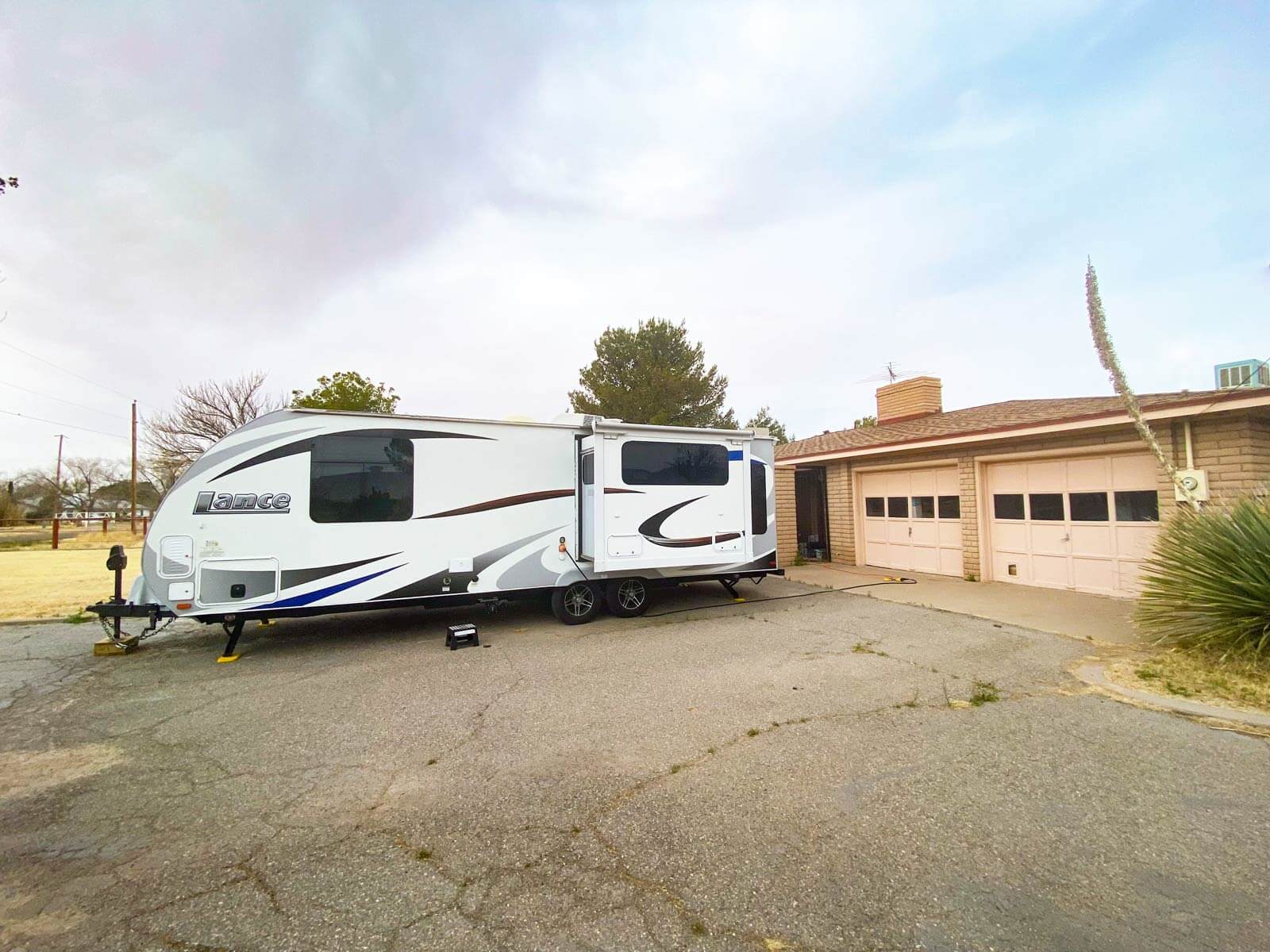
Here are some ideas of things to check after you get permission:
PRO TIP: Use Google Earth to check out the property online and note any concerns about entering or parking on the property so you can run them by your host.
After you’ve made sure the moochdocking location will work for your host and your RV, go ahead and agree on a length of stay or amount of time you’ll be on the property. You don’t want to outstay your welcome accidentally!
It’s proper moochdocking etiquette to clean up after yourself and leave the property in the same condition as when you arrived.
At the end of your stay, you may also want to throw in a bottle of wine, gift card, or chip in on the electric bill to say ‘thank you’.
By following these simple guidelines, moochdocking can be a fun and affordable way to camp.
Benefits of Moochdocking
The most significant benefit of moochdocking is – it’s FREE! But besides that, there are a lot of other pros to moochdocking.
- You can use the house on the property to take long hot showers
- You’ll have access to the host’s house laundry room
- You can enjoy dinner and quality time with friends and family
For most RVers, moochdocking is a great way to catch up with people they haven’t seen after time out on the road. It’s like going for a visit, but you can take your home with you and not feel as if you are intruding.
How to Get Power
Hooking up to your friend’s house using an outdoor plug or garage electrical outlet is different from a campground pedestal.
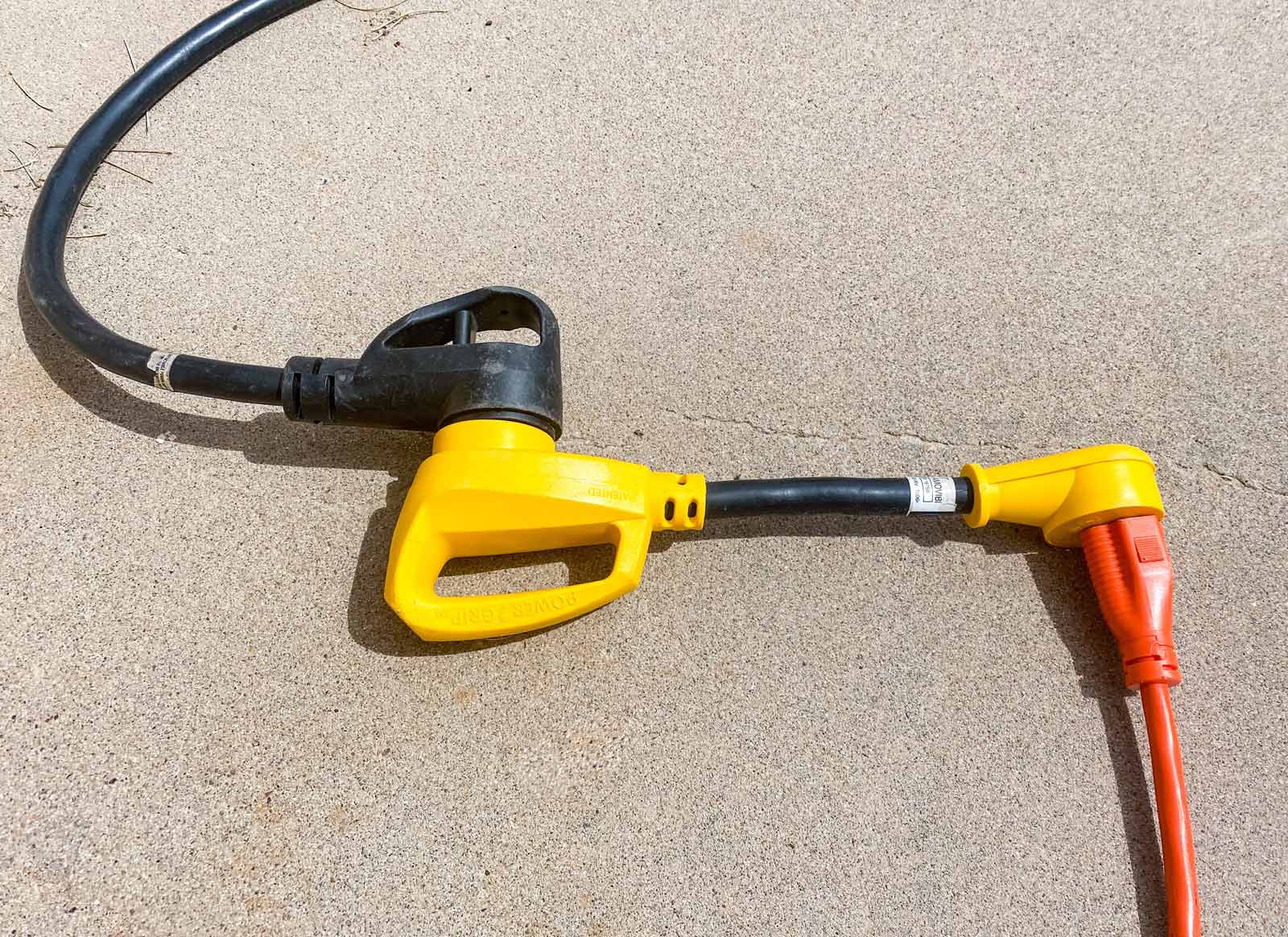
Remember, instead of the usual 30 or 50 amp electrical connection, a residential house connection is typically 15-amp.
In addition, homes usually have more than one outlet on a circuit breaker, so don’t assume that the entire 15 amps are available to your RV. Be aware that running your RV air conditioner or microwave could potentially trip the breaker.
Now, let’s look at some of the essentials you’ll need to get electrical power and other resources while moochdocking.
Essentials for Moochdocking
Although you can pull into a driveway and dry camp, you’ll need a few essentials if you want to moochdock with electricity and fresh water.
- Extension Cord – Used for connecting to power as long as your host agrees. Ensure you have a heavy-duty, outdoor extension cord with an amp capacity of at least 15 amps.
- Electrical Adapter (Dogbone) – This 15 to 30 amp adapter connects your RV power cord to an extension cord.
- RV Drinking Water Hose – To hook up to water or fill your tank.
- Y Value Splitter (optional) – If your host uses their water spigot, add a splitter so you can both use water or turn the water valves on and off as needed.
- Wifi Extender (optional) – Use a small wifi extender like this one to boost the wifi signal from your host’s home and connect to the internet (as long as your host doesn’t mind).
4 Top Tips for Moochdocking
Here are a few of our best moochdocking tips for having a successful camping experience.
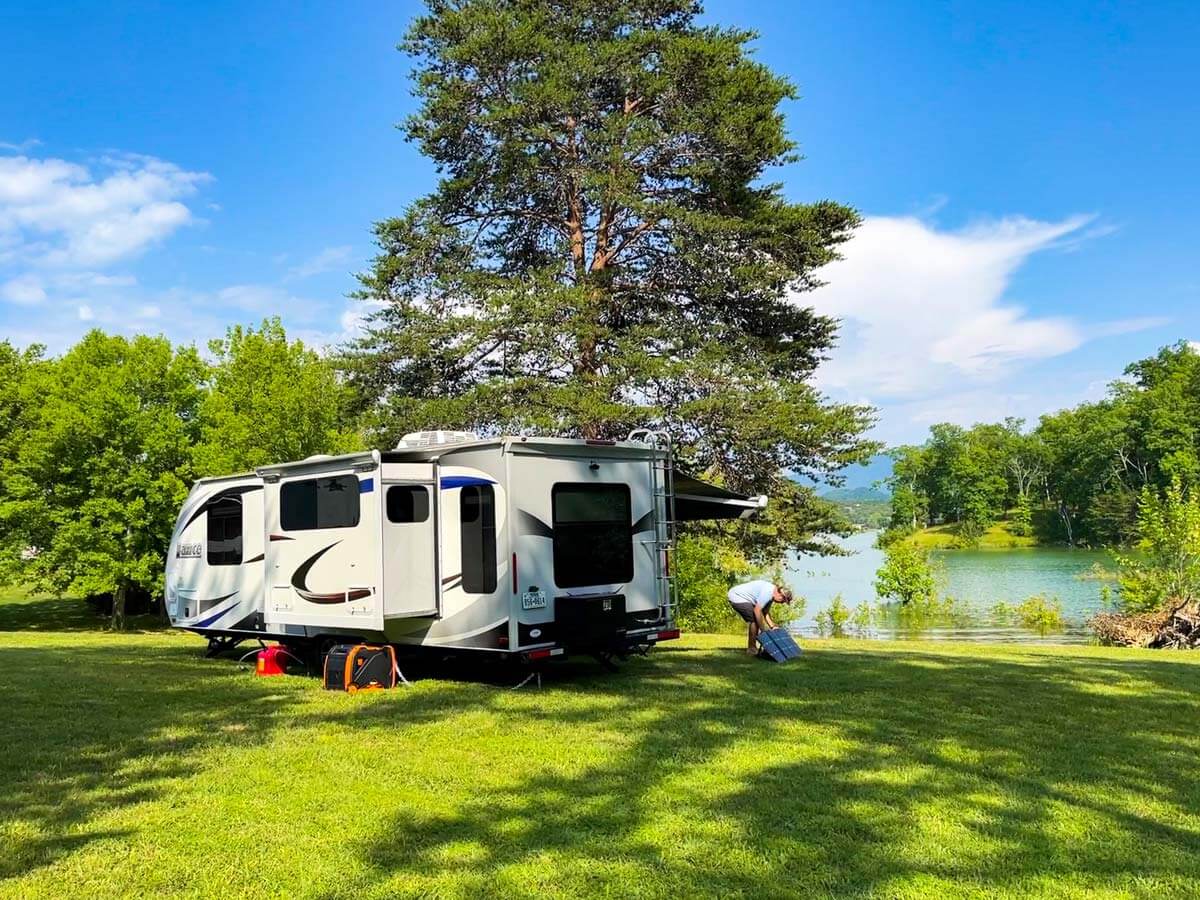
- ARRIVE WITH EMPTY WASTE WATER HOLDING TANKS. Arrive with empty grey and black water tanks. If there is a home on the property, try to use the bathroom and shower to conserve space in your holding tanks. (Make sure it’s ok with the host!) If you’re moochdocking for a longer period of time or on a property without a house nearby, locate the nearest dump station so you’ll be prepared to dump your tanks as needed.
- BRING YOUR OWN POWER SOURCE. For moochdocking locations without a power connection, solar panels or a generator can be helpful for recharging your batteries. (Check with your host to ensure they don’t mind if you run a generator.)
- PREPARE FOR UNLEVEL GROUND. When moochdocking on undeveloped private land, finding level ground to park your RV could be challenging. Bring leveling blocks (we recommend two packs of ten) to ensure you can level your RV.
- BE COURTEOUS. Lastly, don’t forget to be extra courteous to your host, and don’t overstay your welcome. Keep your “campsite” clean and don’t be too noisy. Some people may not even notice you’re there, while for others, it could be a bit of an intrusion. Be aware of your and your RV’s impact at the location, and remove yourself if or when necessary!
Moochdocking Apps & Memberships
There are a couple of popular memberships you can join that will give you access to moochdocking locations.
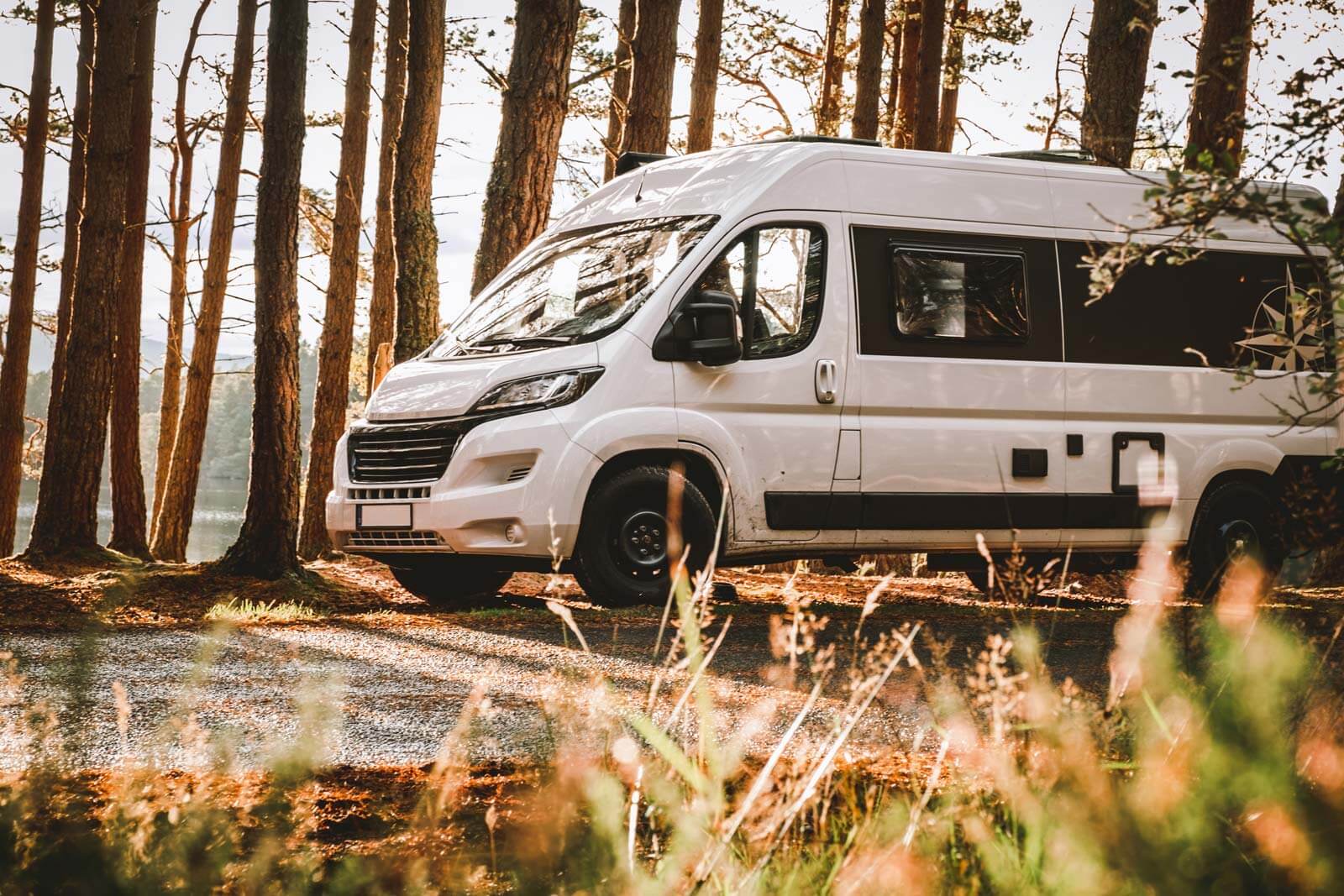
Boondockers Welcome
Boondockers Welcome is a collection of hosts on a membership-based platform that allows you to use the host’s driveway or private land to park your RV.
With almost 3,000 host locations nationwide in the U.S., this moochdocking option is becoming an attractive way to camp.
You can stay up to five nights on a property with this membership. At the time of writing this, Boondockers Welcome advertises that about 75% of their hosts also offer hookups (some of these are at a small additional cost).
You can find out more about Boondockers Welcome here.
Harvest Hosts
Harvest Hosts is another excellent option for experiential moochdocking!
Harvest Hosts is a collection of over 4,000 private wineries, breweries, farms, and other attraction-based locations across the U.S., Canada, and Baja that provide free overnight camping. You can even upgrade to add golf courses.
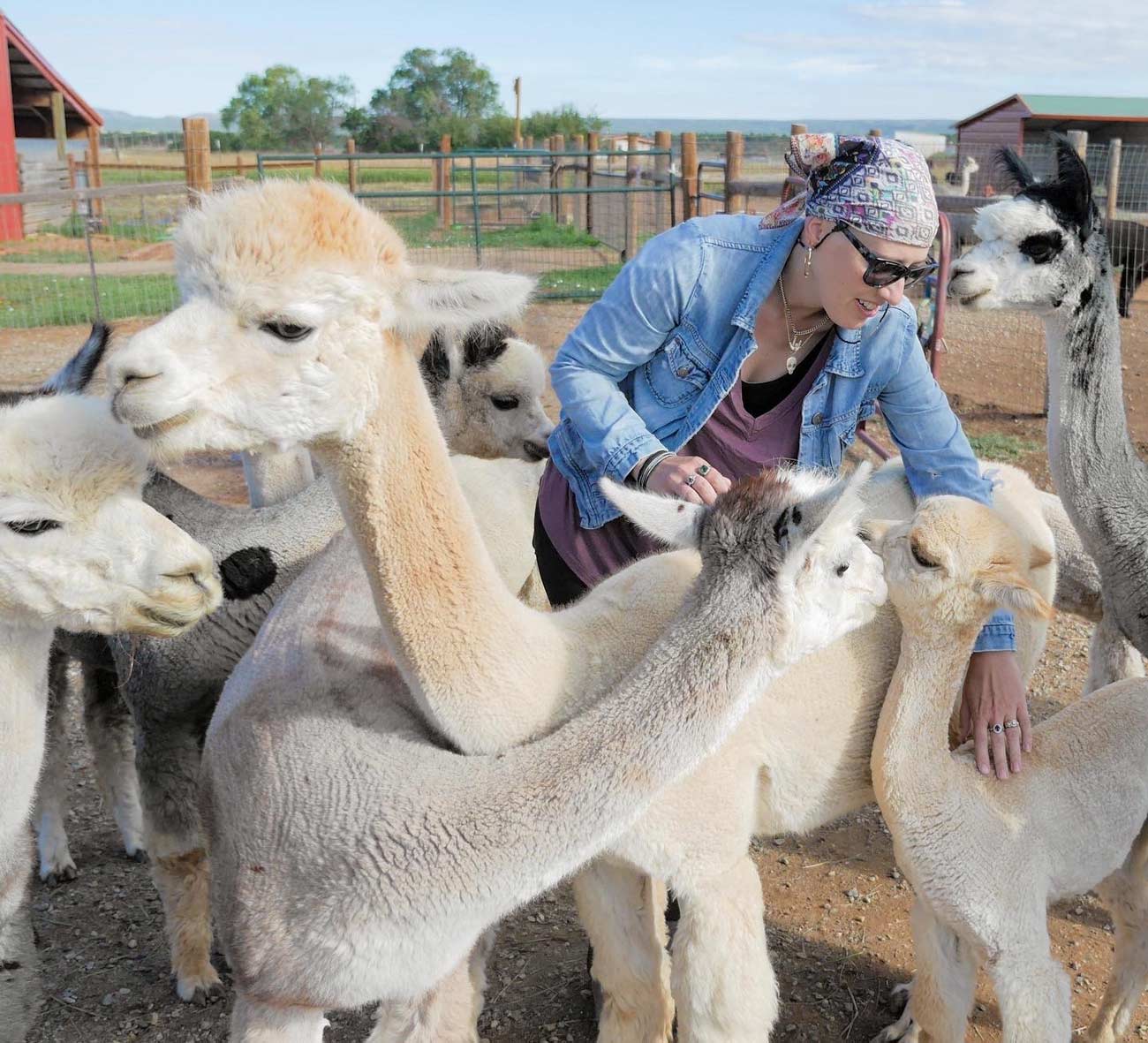
These spots are limited to a one-night stay, so they are perfect for an overnight while you travel to your next destination.
Harvest Hosts also suggests a $20 minimum purchase at the business where you park, making it more of a financial commitment than Boondockers Welcome.
READ NEXT: To learn more about this program, check out An Honest Harvest Hosts Review: It Is Worth It?
Moochdocking at a Business
Although not traditionally what would be considered moochdocking, you can also park your RV overnight at stores such as Walmart, Cracker Barrel, Cabela’s, or a truck stop.
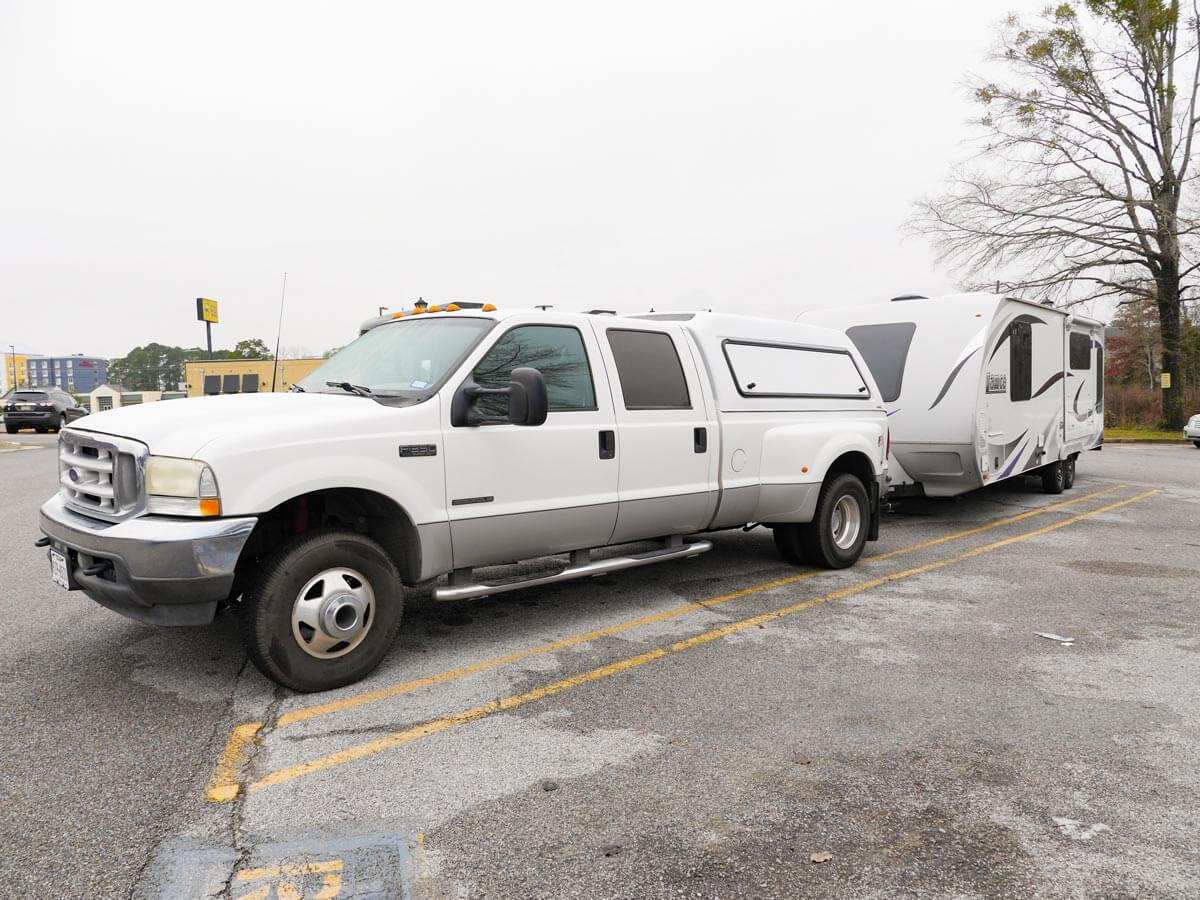
Aside from a few businesses that offer electrical connections for a fee, you will not have hookups at these locations. However, many stores welcome RVers to park overnight, and they can be a great option for a one-night stay on an RV trip.
Final Thoughts on Moochdocking
Moochdocking is a great way to save money while RVing, with the often added bonus of enjoying the amenities of home.
There are many ways to take advantage of this free camping style, whether you park in a friend’s driveway, stay on family’s property, or use a membership program to enjoy a winery with a short walk home.
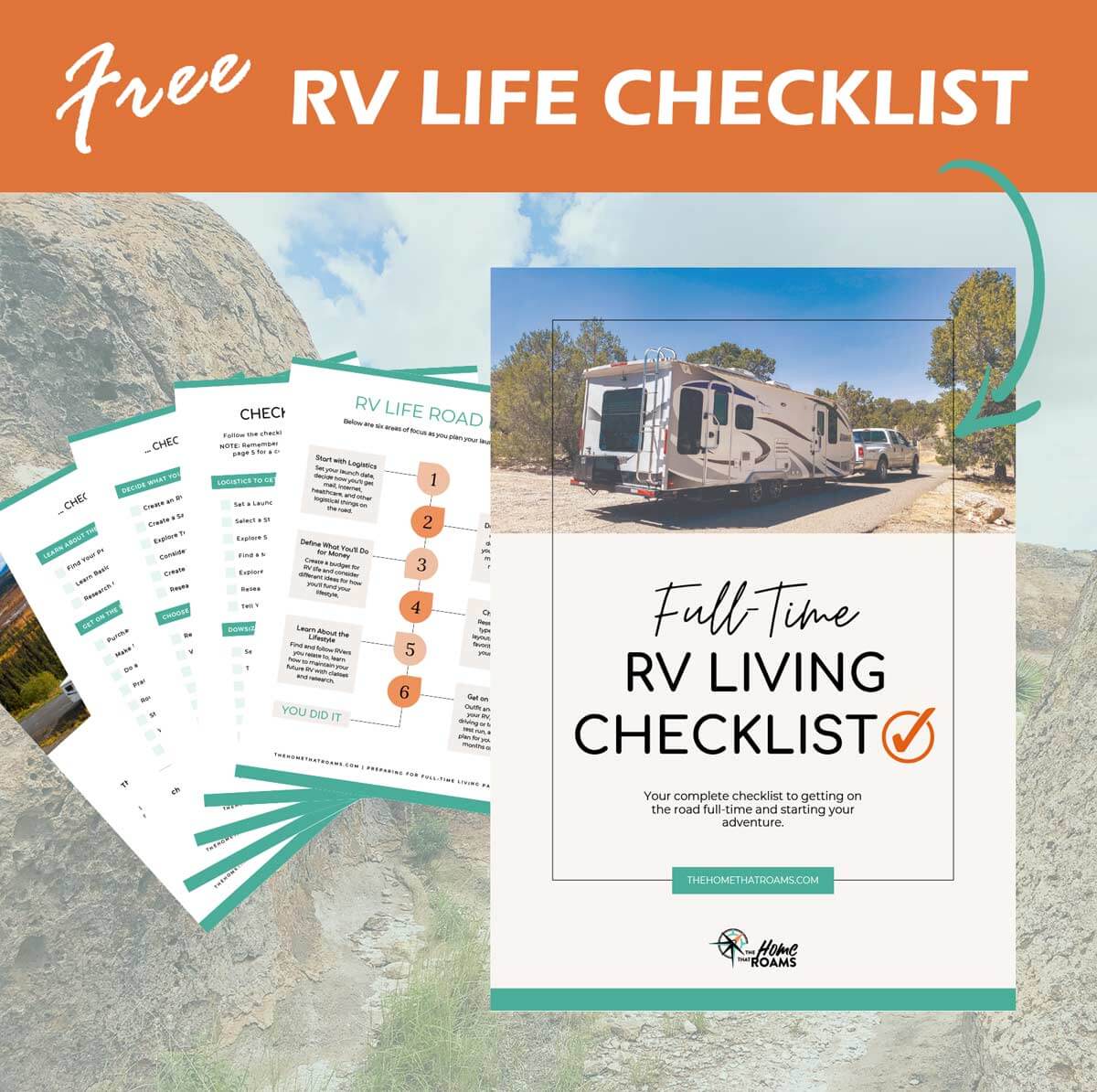
Your Guide to Launching RV Life
Road Map & Checklist – Start Now!
Unsubscribe at any time. View our privacy policy.
If you’re looking for ways to experience your favorite destinations without breaking the bank, moochdocking might be just what you need.
Want to learn more about how to go full-time RVing on a budget?
For tips on finding deals on campsites, saving money on fuel, and more – view our complete guide.
Like this post? Save it on Pinterest for later.
